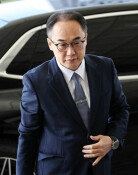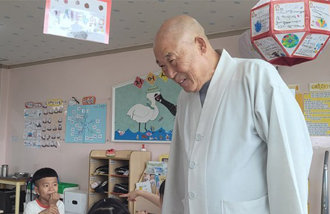Opposition partys outdoor struggle denied by public
Opposition partys outdoor struggle denied by public
Posted September. 23, 2013 05:51,
Lawmakers who have returned to Seoul from their constituencies in local provinces are busy conveying the publics sentiment revealed during the Chuseok (Korean Thanksgiving) holiday to their parties. Depending on their affiliations, lawmakers interpret situations to their own advantage, but there was one thing in common.
People were demanding the political circle to halt political strife, and instead exert more efforts to improve peoples livelihoods. In a joint opinion poll conducted on Friday by the broadcaster MBC and polling agency Research & Research, the number of respondents who replied that the main opposition Democratic Party should stop outdoor struggle were nearly three times (66.7 percent) that of those who replied it should continue (23.0 percent), which effectively illustrates such sentiment among the public.
The Democratic Party held on Sunday a meeting on public sentiment revealed during Chuseok that brought together its chairman, floor leader and 22 lawmakers. After the meeting, Chairman Kim Han-gil said, I have realized both democracy and peoples livelihood are important, saying that his party will conduct struggle in parallel both in and outside the National Assembly. Party floor leader Jeon Byung-hun told a press meeting, Since the National Assembly is a venue for the opposition party, we must increase the utility of parliament. As two leaders of the Democratic Party have mentioned the importance of activities within the National Assembly, concern over the partys boycott or parliament in vegetative state has been eased, which is fortunate.
Monday marks the 54th day after the Democratic Party began outdoor struggle. The duration of its outdoor struggle now exceeds the 53 days, during which then the main opposition Grand National Party (predecessor of the ruling Saenuri Party) was engaged in an outdoor protest rally against revision to the private educational institution act in December 2005. The Democratic Party has sought to defend its outdoor struggle whenever it faced criticism against its outdoor rally by citing as an example the Grand National Partys off-National Assembly strife. Some in the Democratic Party have claimed that once it started outdoor struggle, it should continue such struggle longer than the Grand National Party.
However, the situation now is completely different from then. Now, even the ruling party holding majority seat in the National Assembly cannot pass any single act without consent of the main opposition party due to the National Assembly Advancement Act. Although the Democratic Party is a minority party, it can check the Saenuri Partys unilateral action in parliament, and secure what it wants through dialogue and compromise. As floor leader Jeon noted, for the main opposition .party to boycott the parliamentary inspection of the government, government interpellation sessions, and review of state budget effectively constitutes an act of self-injury. The Democratic Party is advised to dump its affection for outdoor struggles, withdraw its tents, and return to the National Assembly immediately.
President Park Geun-hye and the ruling Saenuri Party are also urged to heed on the publics sentiment demanding better politics that was revealed during the Chuseok holiday. Following the recent three-way talks between the president and chairmen of the ruling and opposition parties, President Park saw her approval rating slightly decline. It takes two to tango. Park and the Saenuri Party should display flexibility and generosity by placing a mat, so that the Democratic Party can return to the National Assembly and tango together for the public.







